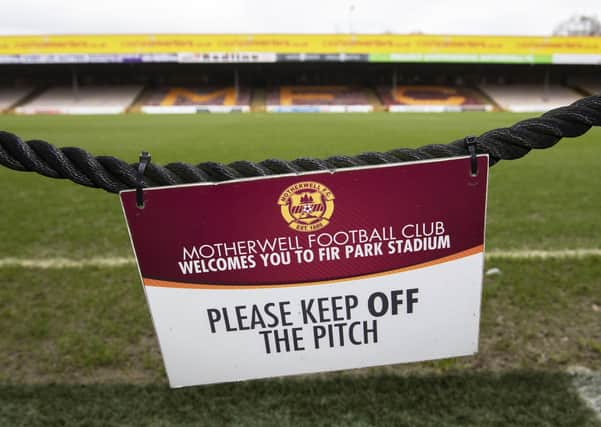Fan ownership not good for full-time clubs, says SPFL chief Neil Doncaster


Motherwell became the first Premiership club to move to full supporter ownership when the Well Society secured Les Hutchison’s 76 percent shareholding in 2016 and earlier this year announced it is operating with no external debt for the first time in 40 years.
St Mirren plan to become fully fan-owned by 2021, while Hearts’ move to a complete transfer of control to the Foundation of Hearts supporters’ group will be delayed by the financial impact of the coronavirus pandemic which forced owner Ann Budge to ask players and staff to take a 50 per cent wage cut this week.
Advertisement
Hide AdAdvertisement
Hide AdSPFL chief executive Doncaster, speaking to the Price of Football podcast shortly before Scottish football was suspended because of the COVID-19 crisis, believes well-funded individual owners remain the safer option for top-flight clubs.


“Going down the fan ownership route is potentially far more fraught,” said Doncaster. “To me, the best model is the benevolent dictator – someone who has the wherewithal to be able to write the cheque if things get difficult and you’ve got clarity of decision making.
“For me, the best model for a professional club is where you’ve got clarity of decision making and the ability to fund losses. Ultimately, if there is a financial shortfall in a fan-owned club, the banks aren’t going to lend you any more money, so where do you go? That’s the real issue.
“For part-time community clubs, I don’t have any problem with fan ownership at all. But for the bigger numbers at full-time professional clubs, I think it is a difficult concept.”
The ongoing global health emergency has created unquantifiable concerns over the finances of all Scottish clubs, some of whom have run up losses in recent years in an attempt to fulfil ambitions of either winning trophies or achieving promotion to the Premiership.
Since the SPFL was formed seven years ago, no Scottish club has gone into administration which Doncaster regards as vindication of the organisation’s regulations. He does not see a need for the introduction of Uefa-style Financial Fair Play into Scottish football.
“We don’t have detailed Financial Fair Play rules in the way that some other leagues do,” said Doncaster. “I like the idea of Financial Fair Play rules. The idea of sustainable clubs is difficult to argue with.“But the way those rules work in practice is perhaps the difficulty. We have a fairly straightforward set of rules which were brought in after the last set of insolvencies at Rangers and Hearts in 2012 and 2013.
“Those rules say that clubs have to pay their players on time and have to pay the taxman on time. If you are doing that, then everything is OK.
Advertisement
Hide AdAdvertisement
Hide Ad“The danger of Financial Fair Play rules is that they can limit ambition and you have to try to create loopholes you can crawl through. A simple system, to me, is the far more sensible approach and to date we haven’t seen any insolvencies since 2013. We see players being paid by clubs and the taxman being paid at the same time.”
Comments
Want to join the conversation? Please or to comment on this article.